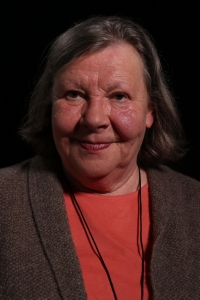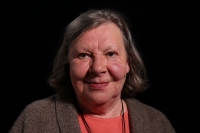I spent my childhood in a refugee camp at a castle, but our “real home” was the Sudety

Download image
Ms Dora Gebhardt was born on 12 April 1944 in the village of Ziegenhals (today Glucholazy in Poland), and spent her early childhood in the neighbouring Mikulovice (Niklasdorf in German). Both the villages were part of Germany during the war. In 1946 the whole family was ordered to the transports. A large part of the people expelled from Mikulovice were settled in the empty Hollfeld castle in the American Zone of Occupation. Ms Dora spent seven and a half years there, her younger sister died and her brother was born. Her mother tended to be mentally absent, father unemployed. In 1954 the father found work due to the growth of industry and the family moved to Düsseldorf. Ms Dora and her husband built a travel agency and worked and lived abroad. After her divorce, she devoted time to her lifelong hobby of painting and moved to Franconian Switzerland, within eyesight of the castle she grew up in. Her paintings adorn the walls of the castle chapel and she works as a tour guide there. She has set up a “refugee’s parlour” with original items from the Expulsion and tells visitors her story. She is in contact with the homeland of her parents, with Silesia and the long-time local residents.

